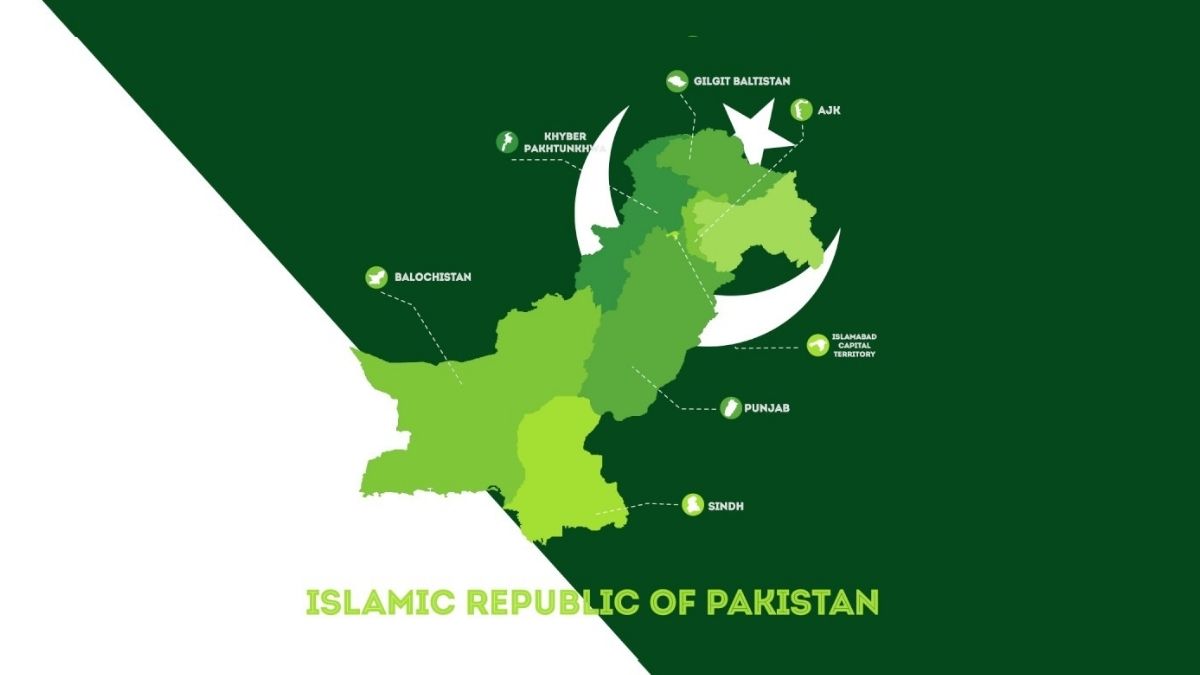Why Pakistan Holds Global Strategic Value
Pakistan, positioned at the heart of South Asia, has long been recognized for its geostrategic importance. Sharing borders with China, India, Iran, and Afghanistan, and offering maritime access to the Arabian Sea, Pakistan acts as a vital bridge between South Asia, Central Asia, and the Middle East.
1. Strategic Geographic Location
Pakistan’s geographic position connects three crucial regions:
- South Asia: Sharing a long and sensitive border with India.
- Central Asia: Close proximity to resource-rich landlocked countries.
- Middle East: Access to oil-rich Gulf states through the Arabian Sea.
This location makes Pakistan a natural transit hub for trade, energy, and connectivity between East and West. Its position enhances its role in regional stability and global trade corridors.
Read More: Syria Interim President’s First Foreign Visit to Saudi Arabia
2. CPEC: Strengthening Geostrategic Influence
The China-Pakistan Economic Corridor (CPEC) is a multi-billion-dollar infrastructure initiative under the Belt and Road Initiative (BRI). It connects:
- Gwadar Port in Balochistan to Kashgar in China.
- Includes roads, railways, fiber optics, and energy pipelines.
Key benefits of CPEC:
- Provides China direct access to the Arabian Sea.
- Transforms Pakistan into a trade and energy bridge.
- Boosts regional economic integration and foreign investment.
CPEC significantly boosts Pakistan’s strategic value on the global economic map.
3. Gwadar Port: Gateway to Global Trade
Gwadar Port, located near the strategic Strait of Hormuz, is a deep-sea port with immense commercial and naval potential.
Why Gwadar matters:
- Offers shortest route for China and Central Asia to the Middle East and Africa.
- Competes with regional ports like Chabahar (Iran) and Dubai.
- Enhances Pakistan’s maritime trade and defense capabilities.
Gwadar’s development under CPEC further solidifies Pakistan’s role in global trade routes and maritime security.
4. Pakistan’s Role in Regional and Global Security
Pakistan plays a central role in maintaining peace and stability in South Asia:
- Afghanistan: Key player in peace talks and post-conflict reconstruction.
- India: Strategic balance through nuclear deterrence.
- Counter-terrorism: Partner in the global War on Terror with experience in combating extremism.
With one of the strongest militaries in the region and nuclear capability, Pakistan commands strategic respect from regional and global powers alike.
5. Military and Nuclear Significance
Pakistan is one of the few Muslim-majority nations with nuclear weapons, making it a nuclear power with regional deterrence.
Military highlights:
- Ranked among the top 10 strongest militaries globally.
- Member of Islamic Military Alliance and active in UN peacekeeping missions.
- Strategic partnerships with China, Turkey, Saudi Arabia, and Iran.
Its defense alliances and military strength reinforce its geopolitical leverage.
6. Economic Transit Hub of the Future
Pakistan has the potential to become a regional trade and energy corridor:
- Linking China with the Middle East and Africa.
- Facilitating Central Asian energy exports to the global market.
- Enhancing intra-regional trade with improved road, rail, and pipeline networks.
With continued infrastructure development, Pakistan could emerge as a regional economic engine.
7. Diplomatic and Strategic Alliances
Pakistan maintains a balanced foreign policy, engaging with all major powers:
- China: Strategic ally and economic partner (CPEC).
- USA: Cooperation in security and counterterrorism.
- Russia: Growing defense and energy collaboration.
- Middle Eastern nations: Deep religious, economic, and military ties.
This balanced diplomacy enhances Pakistan’s role in regional dialogues and global decision-making.
8. Climate & Natural Resource Geostrategy
Pakistan holds:
- Vast mineral wealth (coal, copper, salt, gemstones).
- The Indus River Basin, critical for agriculture and water security.
- Glaciers in the north, vital to regional climate and hydrology.
Its geography makes it a key stakeholder in climate resilience, water security, and regional cooperation.
Read More: Fad Diets Are Out. It’s Your Lifestyle Habits That Matter
Conclusion: Pakistan’s Evolving Strategic Role
The geostrategic importance of Pakistan stems from its powerful combination of location, defense strength, and economic potential. As CPEC and Gwadar continue to evolve, and as regional dynamics shift, Pakistan’s role will only grow in influence. Stay tuned with Bloom Pakistan
With the right policies and infrastructure, Pakistan can transform into a regional connector, trade hub, and stabilizing force—truly making it a key player in South Asia and beyond.
FAQs
Why is Pakistan considered geostrategically important?
Pakistan connects South Asia, Central Asia, and the Middle East, serving as a key corridor for trade, energy, and military strategy.
What is the role of CPEC in Pakistan’s strategic value?
CPEC enhances Pakistan’s importance by connecting China to the Arabian Sea, boosting trade and energy access through Gwadar Port.
How does Gwadar Port benefit Pakistan?
Gwadar Port provides access to international sea routes and positions Pakistan as a maritime hub for global commerce.









